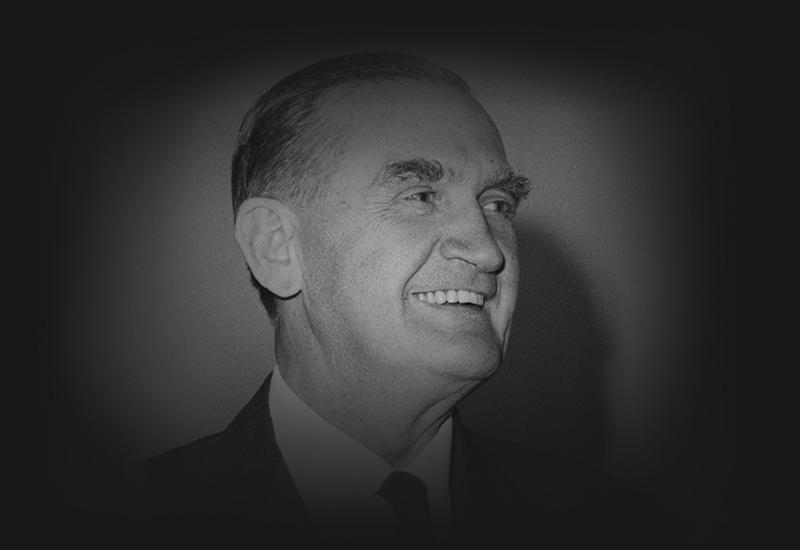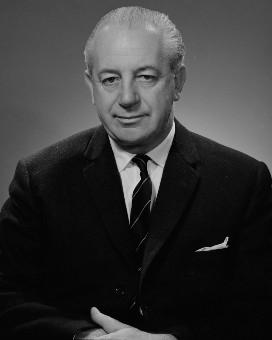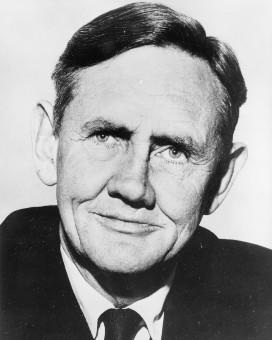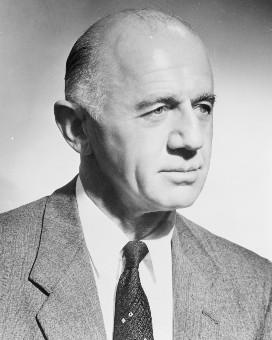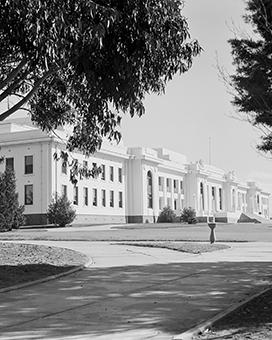On this page
McEwen was 67 years old when he became caretaker Prime Minister and served only 3 more years in parliament. During that time, he achieved the establishment of the Australian Industry Development Corporation – a final monument to his 20 years of responsibility for Australia’s trade relations.
McEwen was deputy Prime Minister and Minister for Trade while John Gorton was Prime Minister. William McMahon became Prime Minister a month after McEwen retired from parliament in February 1971.
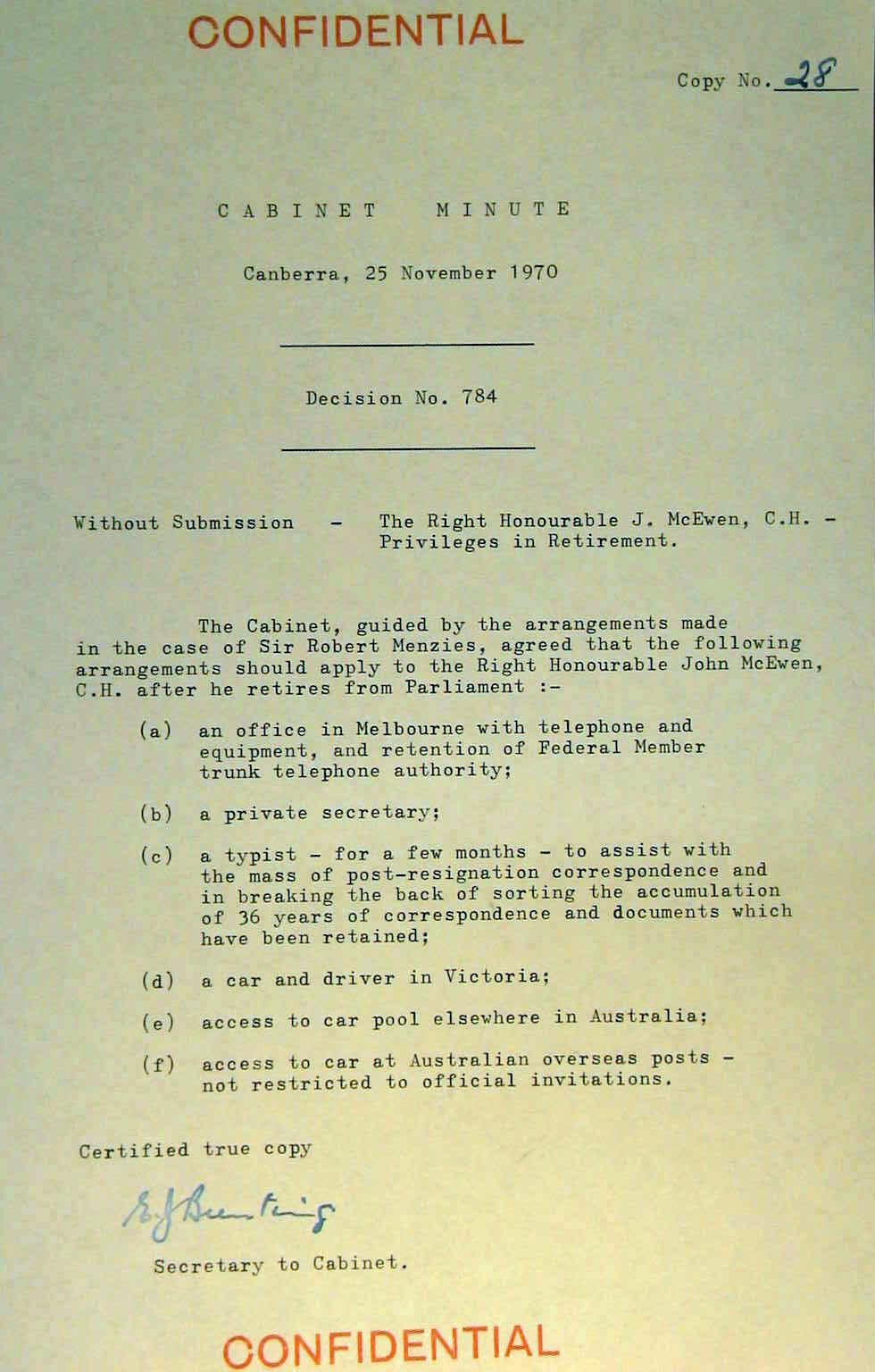
On his retirement, John McEwen was provided with an office and typist to 'assist with ... breaking the back of sorting the accumulation of 36 years of correspondence and documents'. NAA: A5873, 784, p.1
Deputy Prime Minister 1968 to 1971
McEwen led an Australian delegation to a United Nations Conference on Trade and Development in New Delhi in February 1968, then went to Tokyo for trade talks. In July that year, John McEwen and Mary Byrne, his personal secretary, married in Melbourne.
McEwen contested his last election in October 1969 and the following year achieved the establishment of the Australian Industry Development Corporation, despite the opposition of Treasurer William McMahon and the Treasury Department. Long a goal of McEwen’s, this was dubbed ‘McEwen’s Bank’.
McEwen retired from parliament on 1 February 1971.
In retirement 1971 to 1980
On 28 May 1971, McEwen was invested with the GCMG at Buckingham Palace, having received the award in the New Years Honours list that year. In February 1973, McEwen became the third Australian Prime Minister to receive the Japanese honour, the Order of the Rising Sun, 1st Class.
In 1975, McEwen sold the ‘Chilgala’ farm and moved to the Melbourne suburb of Toorak. In his retirement, at the persuasion of his friend Arvi Parbo, he undertook some consulting work on government relations for the Western Mining company. He also travelled overseas, including trips to Japan and South Africa.
McEwen died at his Toorak home on 20 November 1980, at the age of 80, and was survived by Mary McEwen.
Sources
- Golding, Peter, Black Jack McEwen: political gladiator, Melbourne University Press, Melbourne, 1996.

